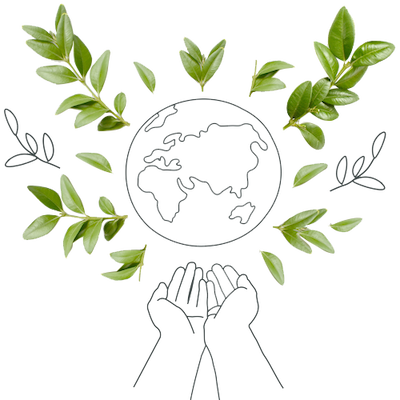Home | Carbon offsets | Rimba Raya, Borneo

Rimba Raya, Borneo
The Rimba Raya Biodiversity Reserve project is protecting one of the most highly endangered ecosystems in the world.
Without this project, the carbon-rich, peatland forest of Rimba Raya would have been turned into palm oil estates, emitting over 100 million tonnes of carbon into the atmosphere.
Instead, the project is protecting the land and working with local communities to achieve all 17 of the Sustainable Development Goals.
Developed by InfiniteEARTH in 2009, Rimba Raya protects over 640 square kilometers (250 square miles) of High Conservation Value (HCV) tropical peat forest, with over 350 million tonnes of carbon stored in their peat domes.
The measurable contribution to emission avoidance is the equivalent of removing one million cars from the world’s highways every year for the next 30 years!
As well as playing a huge role in climate mitigation, peatlands are home to rare organisms found nowhere else, and they contribute to reducing floods, droughts and wildfires, all expected to increase as the climate changes.
This project is committed to proactively work with local communities to not only preserve the peatland and surrounding wildlife, but to support sustainable development and ensure people and nature can survive and thrive into the future.
Developer information
InfiniteEARTH is a Hong Kong-based project development company specialising in conservation.
The company was created in 2008 with the goal of creating this reserve.
The company is dedicated to sustainability solutions that go beyond ‘carbon neutral’ and ‘sustainable’.
They are committed to the development of economically viable solutions for climate change and environmental degradation by addressing one of the largest underlying drivers of deforestation: poverty.
Great for Earth
Carbon emissions from peatland degradation currently contribute to a whopping 5% of global emissions.
As the largest natural store of carbon on land, it is essential that we protect peatlands like Rimba Raya from conversion for agriculture such as palm oil while working with local communities on alternative sustainable development opportunities.
This project is helping to avoid and reduce emissions by stopping the conversion of tropical peatland forest into palm oil plantations.
As well as protecting 47,000 Hectares of peatland, community training and awareness campaigns paired with significant investment in fire prevention and suppression is helping to reduce habitat loss and emissions from fires.
The Rimba Raya Biodiversity Reserve collaborates closely with the Orangutan Foundation International (OFI) to actively conserve these charismatic great apes.
Palm oil is the leading cause of orangutan extinction, where it is estimated that every year 1,000 - 5,000 orangutans are killed by palm oil plantations.
The Reserve is now a critical buffer zone between palm oil and one of the last populations of wild orangutans on Earth.
Not only paying attention to the land, but the project also works with communities in fishing villages along the Seruyan River to encourage sustainable fishing practices and carry out community clean-ups, removing 5.7 tonnes of rubbish from the area so far.
Along the coastal area of the project, the planting of 55,350 mangrove seeds is also providing habitat for young fish, reducing the damage of storms, and helping to sequester more carbon which would otherwise be in our atmosphere.
The program also helps to generate income, particularly for people of Sungai Bakau who work mainly as fishermen and farmers.
Positive for people
Money earned by the Rimba Raya Biodiversity Reserve project supports livelihood programmes in surrounding villages.
The programme uses the Sustainable Development Goals to identify priorities for local communities, resulting in extensive programmes across employment, education, energy, health and equality.
The project addresses all levels from education to employment.
To support literacy, all children are provided school resources like books, stationary, school bags through an Education Fund and scholarships are provided to high achieving children from low income families.
To develop skills the project gives communities access to technology like drones, computers and generators, and provides on-the-job training in enterprises like farming.
To date, the project has created 52 positions, directly hiring local villagers including 17 women.
Micro-enterprises and community initiatives support entrepreneurship and decent job creation as well as increasing the income of all households bordering the project.
The project started a women’s COOP empowering women to develop initiatives and micro-enterprises like Zuper Shrimp Paste, Chicken and Egg farming, The Salted Fish micro-enterprises and Traditional Handicrafts.
Investment in health and clean energy is another key focus, which has led to the distribution of 300 water filters to villages alongside 3 community-wide filtration systems, the construction of a small-scale solar power plant and provision of individual solar lanterns to every household, a floating clinic providing access to healthcare in every village - particularly those in more remote regions - and a program providing reading glasses to those in need.
The project is also committed to generating awareness and promoting accountability in their work, releasing a periodic newsletter, ‘Seeds of Change’, providing updates on Climate, Community & Biodiversity initiatives maintained by the project, including on-the-ground interviews.
UN Sustainable Development Goals met by this project:
















